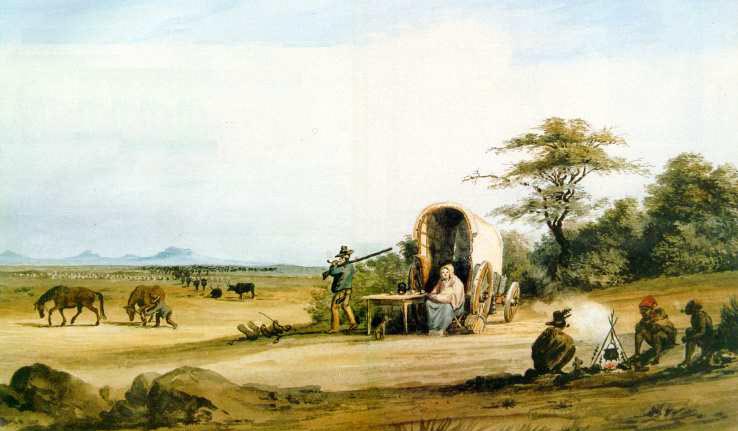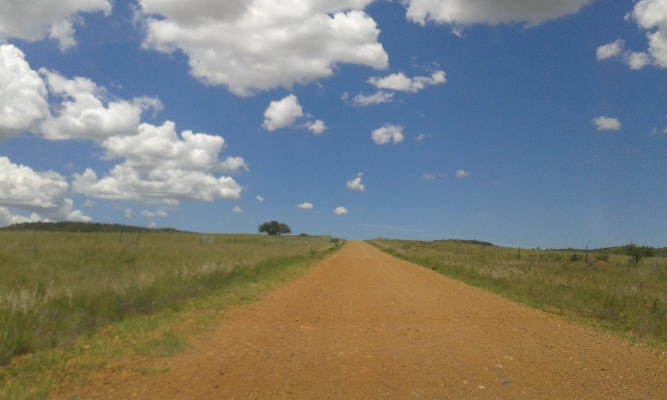FRIDAY, 4 MAY 2018
At the end of April 2018, Kanye West had the social media world in full riot mode over comments he had made on TMZ. He said: “When you hear about slavery for 400 years. For 400 years? That sounds like a choice! Like, you were there for 400 years […]? You know … it’s like, we’re mentally in prison.”
My interpretation: If given a choice between violent death on the spot or being cast in chains, most people would certainly choose the chains. You are then taken away, loaded on a ship, and after a nightmare trip lasting several weeks, you are offloaded on the coast of another continent where you are sold to someone who plans to extract from you the maximum amount of labour possible. Then, after you’ve worked yourself to death, your body is thrown into a shallow grave.
How many choices did these unfortunate people have throughout the process since they were loaded onto the ship? Some imprisoned people rebelled and overwhelmed their abductors. Most probably thought they would try something as soon as they had arrived, and they recovered from the traumatic journey and the abduction leading up to it.
How many of these captured people ultimately did rebel against their situation? Thousands (just on the island known today as Cuba alone there were rebellions recorded in the years 1795, 1798, 1802, 1805, 1812, 1825, 1827, 1829, 1833, 1834, 1835, 1838, 1839–43 and 1844). Why? Some captured and enslaved peoples did not accept their new status. They chose to resist. They were willing to pay a terrible cost if they failed.
Is the fact that thousands resisted a judgment against the millions of slaves who never rebelled? Speaking just for myself … how can I judge them if I – had the dice rolled differently – would probably have been counted among the millions who accepted their new reality?
* * *
No matter how unpleasant a particular fact is, or how terrible the implication, if something is true, it’s not a lie. In the Caribbean, slaves – many of them strong, young men – outnumbered slave owners ten-to-one. Once again, did some slaves rebel? Yes. Did some succeed in their rebellion? Yes.
Why didn’t more slaves rise up? Many factors certainly played a role, including psychological manipulation, the incorporation of slaves into the system of exploitation and suppression of other slaves through selective benefits such as a lighter workload and better food, and also the desire to stay with loved ones rather than putting their lives and their own lives in even more danger.
Can the acceptance of their status and reality be regarded as a choice? It seems cruel to say it was. Piers Morgan is one of the people who argue that cruelty on the part of slave owners made choice impossible. But did thousands of slaves not make the choice to not be slaves anymore? Did thousands of slaves not succeed in regaining their freedom (see the story of the Jamaican Maroons)? The American artist, will.i.am says on Twitter: “There were lots on slaves that revolted & they were lynched or shot & raped, physically, psychologically with spiritual warfare that is still present today … to say that was their choice is to blame it all on our ancestors & it Disrespects their suffering …”
I believe what Kanye West meant, as other people pointed out and were subsequently torn apart for on social media, was that millions of slaves accepted their reality and status because the pathological cruelty of slave owners and authorities at the time had put them in a mental prison. Kanye West himself explained it as follows, in a post that has since been deleted: “The reason why I brought up the 400 years point is because we can’t be mentally imprisoned for another 400 years. We need free thought now.” Someone else on Twitter responded to this by saying, “Saying that if black people had just broke free of ‘mental imprisonment’ they could’ve broken free of physical slavery is disgusting victim blaming. And totally ludicrous, to boot.” To which writer and cartoonist Scott Adams replied: “I believe the proposition on the table is that giving yourself a victim identity is less productive than looking forward.”
I further believe that Kanye West’s intention was that if you continue thinking about yourself in a particular way, it won’t help you to be free and achieve your own potential.
What is actually a positive and constructive message, was incorrectly interpreted as lack of respect for millions of people who suffered under a brutal system. But what did Marcus Garvey mean when he said, “Liberate the minds of men and ultimately you will liberate the bodies of men”? He also said, “We are going to emancipate ourselves from mental slavery, for though others may free the body, none but ourselves can free the mind.” That is surely also what Bob Marley meant when he sang “Emancipate yourselves from mental slavery. None but ourselves can free our minds.” Were Marcus Garvey and Bob Marley accused of insulting slaves? Were they accused of not being sensitive? Were they accused of victim blaming?
Kanye West could probably have expressed himself more clearly. The storm that burst around his head, however, indicates reluctance to try to understand what somebody means and an eagerness to demonise someone who expresses an opinion that doesn’t correspond to what is considered good and correct thinking. Why demonise? Why not just listen and try to understand? Why the rush to circle the wagons and start shooting?
* * *
Does it matter how you think about your life, yourself, and your ability to create your own future? Can it be said that some people are in a mental prison, even if their arms and legs are not physically chained? Suppose you are a victim of something or has been a victim in the past. Does thinking constantly about yourself as a victim help you to move forward? Is it possible that you eventually become a victim of your way of thinking about things?
Was it Kanye West’s intention to offend slaves? Or did he try to say something about outlook on life? Did he try to say that it is better not to think of yourself as a slave but as a free person with the ability to create your own future?
It is certainly a controversial question, but how much truth is in the idea that millions of slaves remained slaves because they accepted their status and reality? (That certainly does not mean, as someone claimed in a quotation in a Huffington Post article, that slaves deserved their misfortune.)
WEDNESDAY, 6 JUNE 2018
White supremacy was a delusion, and accompanying confidence trick. Brown and black peoples and other groups who suffered because of it failed to call the bluff. Or, maybe it would be more accurate to say some black and brown people called white people’s bluff, but not enough of them did so, and when they did, they didn’t get enough support. (See the article, “Did African-American Slaves Rebel?”)
FRIDAY, 7 DECEMBER 2018
On the one hand, you have people who reckon that slaves had a choice – a terrible choice but a choice nevertheless and chose to remain slaves. On the other hand, you have people who say that slaves had no choice about their lives and status. The latter is a much more dreadful thought to me than the former. It is almost similar to claiming that slaves were not like “ordinary” people. Again, an unacceptable thought, not to mention that it may lead to other unpleasant conclusions. But this is the position that people like Piers Morgan, will.i.am and the author of the Huffington Post article take. Do they say that these people did not have a desire to be free, like “other ordinary people”? And if they had a desire to be free, how was it that they didn’t understand about choice?
What would people like Piers Morgan, will.i.am, the author of the Huffington Post article, and thousands of other people on social media who criticised Kanye West have said to slaves who were planning to escape from a plantation? “Don’t be ridiculous – you’re slaves!”? Would they have reprimanded Harriet Tubman and Frederick Douglass to immediately stop their disobedience and return to the plantation? Would they have reminded escaped slaves that as slaves they didn’t have the ability to choose between life as a slave or to possibly die a horrible death if they were recaptured – but if they got away, they would be free?
My view of the matter is that people who had dreams and desires and aspirations, and who strove to live as free people – like other people of their time and certainly all times, were captured and taken away as slaves. Circumstances and exceptional cruelty of slave owners and traders convinced most of these people that their dreams and desires and aspirations were impossible, and they chose to accept their fate. Most of their children, and most of their later descendants also chose to give up on “normal” dreams and desires and aspirations, and to subject themselves to people who acted as masters over their fate.
It’s a tough idea to wrap your mind around, but it’s the only way one can also realise that a certain percentage of captive people did not accept their apparent fate, and indeed rebelled – many of them successfully. If they had never had a choice to either rebel against their status or to accept it, how could they have taken the steps that history proved thousands did?
To celebrate their exceptional bravery and courage should not take away any sympathy for the millions of people who accepted their status, whilst quite possibly being cognizant of the fact that other people did not. It is after all – let’s be honest here – what most people do today: They accept their apparent fate rather than rebel against it as a first step to creating a better life for themselves.
WEDNESDAY, 12 DECEMBER 2018
For me, the real insult lies in the opinion of people like Piers Morgan who say the slaves did not have choice, that they did not have the ability to see that their options were miserable, but that there was a chance to get away.
To say, “Nonsense, they had no choice, no consciousness even of choice,” is in my opinion to strip them of a cardinal aspect of their humanity. It is almost as if it is easier then to understand why they were kept as slaves in the first place: “These people are not like us,” a slave owner could have said to his son on the veranda of their homestead of a plantation in the southern United States, or in the Caribbean in the seventeenth century. “They don’t understand choice. They don’t understand that they can run away, and we may not recapture them.” The boy might have responded: “We’ll probably capture them again, and they know what we’ll do with them.” Then his father would have asked him: “But wouldn’t you have taken the risk if you were a young slave? I think I would have – but that’s because we understand the concept of choice, and because see ourselves as free people. These people don’t think like us. They’re not able to live as free people like you and me.”
Terrible, isn’t it? But this is the implication of what Piers Morgan is saying, and what other people say who support his view.
______________________

